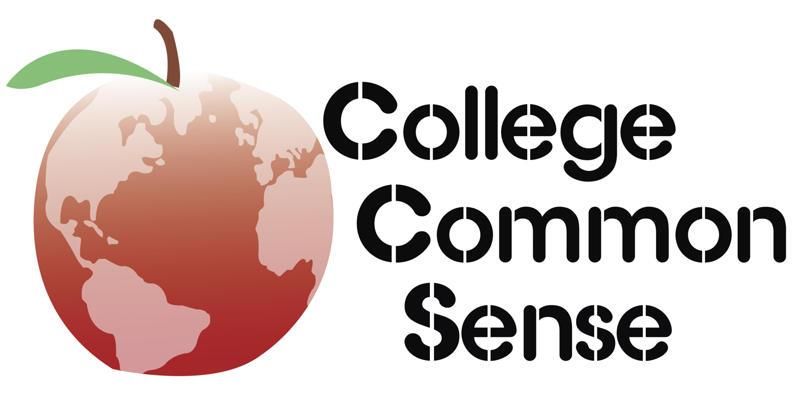Everything works better in cities with high levels of citizen involvement. Social scientists tell us that politics are kinder when more people pay attention to government and vote, and social problems are diminished when people are close to their neighbors. Quality of life improves when people support festivals and attend local concerts and shows. Cities look better if people turn out for neighborhood cleanups and park conservancy projects. And when trouble comes?a big local industry closes or a natural disaster strikes?people are far more likely to see things through when they?re involved and invested in the place they live.
If civic involvement can do all these things, then there?s really only one big question: Where do you begin? Assuming yours is not a place where people vote in high numbers, check up on their neighbors, and turn out in large numbers for cleanup projects, what can governments and civic organizations do to get it started?
Answer: They can help people find one another and get organized for any legitimate purpose: recreation, self-improvement, religious, family betterment, education. And then be patient.
This won?t satisfy impatient leaders who want people involved in high-level civic work . . .? now!? How about calling some town-hall meetings or starting a citizens commission? You can do that, and if you do it well, you might see some improvement in community involvement. But if you want deeper, long-term change?big shifts in how citizens relate to one another and to the community?you need to work on the seedbed of civic involvement, which is self-interest plus connection plus organization. Then trust that these seeds will grow into a more involved citizenry.
Why begin with the seedbed? Because most people who are leaders in their communities didn?t start out as involved citizens; they grew into the role. A few had jobs that took them into local politics or civic causes, but the vast majority came up through volunteer work. And their first experiences with volunteering were usually about things in their immediate areas of interest (family, home, recreation, etc.). Go through the biographies of your city?s elected officials and you?ll find many started out volunteering for the PTA and got drawn into school district issues, or were on a neighborhood association board and got interested in local politics, or were active in a bicycling club and got caught up in a campaign for bike lanes. Once they figured out how things worked in their community, they were hooked.
This, then, is one reason you start with the seedbed: Multiply the number of opportunities for volunteer leadership, and in time you?ll multiply the number of deeply involved civic leaders. It won?t happen quickly. And not all the seedlings will grow into city leaders; many will be happy to serve in the PTA for years, or organize neighborhood cookouts, or teach safety classes to generations of young cyclists.
And that brings us to the second reason for tending the seedbed: Just as healthy forests don?t need all trees to be tall, we don?t need only highly involved civic leaders. We need moderately involved citizens, too: People who vote, serve on PTA committees, volunteer as Scout leaders and soccer coaches, turn out for neighborhood projects, and make small donations to good causes. Just as leaders do, these people strengthen their communities.
I can see this in my own life. My mother belonged to a business women?s club that, as far as I could tell, functioned as a social organization that, on the side, gave out college scholarships. Mostly, though, it just met, listened to speakers, and socialized. The scholarships were a good thing for the community, helping a few deserving students along the way. But an even better thing may have been the connections that these women forged as they helped one another in their careers. Who knows how many of them stayed in my hometown because of this network, enriching the community?s human capital?
We?ve known about this link between social networks and healthy communities for more than a decade, since Harvard Professor Robert Putnam wrote his book ?Bowling Alone.? It was a convincing look at the decline of what Putnam called ?social capital,? the connections that people have with one another. Where Americans once played bridge in foursomes, bowled in leagues, and joined Kiwanis Clubs to meet other business people, we now spend time in cars commuting long distances or in front of TVs or home computers. Putnam learned that people still do bowl; they just don?t do so in leagues. Rather, most bowl alone or as couples. Without the leagues, the bridge parties, the Kiwanis Clubs, and all the other group activities, modern Americans don?t form relationships and work for common purposes as easily as they once did. And this, he warned, threatens healthy communities and democracy itself.
Putnam?s book was a brilliant but depressing analysis of the problem that didn?t give us many starting points for changing things. But a new book and a think-tank report from the U.K. do. They point us to simple ways for connecting people around shared interests, by using a few incentives and a little help.
The book is ?Unanticipated Gains? by Mario Luis Small, a sociology professor at the University of Chicago. As the title suggests, it was about something surprising: the rich networks of support that some families in New York developed when their children were young.
His study focused on mothers from a variety of socioeconomic backgrounds who had children in day care centers. Parents turn to centers, of course, for economic or professional reasons: They have to work or want to work, and they need a safe, nurturing place for their children for a portion of the day. You?d think that the interactions of mothers and fathers dropping off and picking up small children would be hurried and, therefore, not great for creating connections. But some centers, Small found, had very effective ways of bringing parents together and connecting them with the city around them.
The keys were that some centers required parents to do something in addition to leaving and picking up their children: organize a field trip, serve on a parents? advisory committee, raise money, and so on. And some were good at connecting parents with needs with resources elsewhere in the community. As a result, through these centers, some parents got a lot more than child care; they gained lifelong friends, new resources, and much closer connections with the community.
What was important, Small said, were the activities the parents were asked to do. If the work was organized by the parents themselves, which required understanding, and the interactions were repeated, which built trust, friendships grew even among parents who were not much alike. This is particularly important in multi-cultural communities where people often don?t recognize themselves in their neighbors.
And some of the centers were more than good facilitators, Small found. They were good brokers of information. That is, they could help parents find information and get help outside their neighborhoods, by showing them how to navigate the public school system, get help in domestic abuse cases, find doctors and hospitals, even get family tickets to museums and circuses.
What does this have to do with civic work? As my mother?s business women?s network did in my hometown, it made it far more likely these families would stay in New York and be successful there. It meant their children would also be more likely to succeed. And simply having a network of friends?and a stake in the city?meant for many that they would take greater ownership in and care of the community. People with friends are less likely to litter, deface property with graffiti, or ignore criminal activity. And they are more likely to vote, volunteer for good causes, and care about their neighbors.
And something else. This kind of self-interested volunteering teaches people the basics of leadership: organizing meetings, managing projects, finding resources, handling disputes, negotiating with other interests. Some will take these skills to larger venues.
With the New York day care centers, government had a hand in getting the parents connected. Centers that served low-income families and received state aid were required to have parent advisory committees. That incentive alone got some centers started in involving parents, although the smart ones went well beyond that.
Governments can?t require other forms of volunteerism, of course. All they can do is encourage and facilitate it. But that can be a powerful tool, as a report from a British think tank argues. The report is called ?Clubbing Together: The Hidden Wealth of Communities,? and it argues that ?casual connections? among citizens can be generated with little effort and cities can play a big role in doing so by making it easier for people to meet.
What are ?casual connections?? They could be anything from people playing bingo to weekend sports leagues (think of softball leagues here, soccer there). These connections introduce people to one another, promote ethnic understanding, create ?sentiments of trust, reciprocity, and purpose,? and in time ?spur members into social actions, such as voluntary work or charitable giving,? the report says. In other words, they act as seedbeds.
This brings me to the great opportunity for communities. They have lots of places for people to meet, from playgrounds and softball fields to libraries and community centers. And with a little imagination, they could multiply the number of meeting places tenfold: school cafeterias, museum lobbies, concert halls, city hall meeting rooms, college classrooms, YMCAs. There are private spaces too, such as coffee shops, apartment clubhouses, and (yes!) bowling alleys that could be induced to open their doors to citizens?and potential customers?if there were property tax breaks involved. We could also make it easy for groups to find these spaces, with online reservations. (Attention, community hackathons!)
But what about security and cleanup? Organizers could sign forms assuming responsibility for hauling out trash and locking the doors. Would it work? I?ve been involved in scores of public meetings in schools, churches, and recreation centers over the years. I?ve never seen a volunteer group?even an informal one?refuse to take these responsibilities seriously.
But there?s a lesson here too. Much like mulch in a real seedbed, trust is the ingredient that enriches civic seedbeds. Yes, once in a while, you will be disappointed when a group doesn?t clean up the school cafeteria as it promised. But as you?re obsessing about the few, be sure to look about you and see all the healthy trees that are growing up.
?
Photo by Pictoscribe licensed under Creative Commons.
Source: http://otiswhite.com/?p=273
legionnaires disease underwear bomber unclaimed money godspell media matters hana taylor momsen




 I appreciated all the details about different kinds of scholarships and where they come from, and how to make prudent and informed decisions every step of the way. The exercise at the end of the fifth session using the examples of real scholarships illustrates the differences in types of scholarship and the application process.
I appreciated all the details about different kinds of scholarships and where they come from, and how to make prudent and informed decisions every step of the way. The exercise at the end of the fifth session using the examples of real scholarships illustrates the differences in types of scholarship and the application process.








